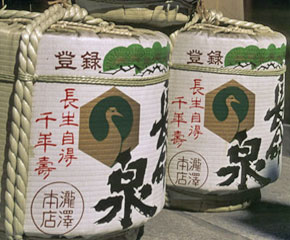The government-funded project at Shinanomachi, 200 kilometres (124 miles) northwest of Tokyo, will produce cheap rice-origin ethanol brew with the help of local farmers who will donate farm waste such as rice hulls to be turned into ethanol.
“We want to present the next generation a preferable blue print , a self-sustainable use of local fuels,” said Yasuo Igarashi, a professor of applied microbiology at the University of Tokyo who heads the three year project.
“If the project catches on with locals then it could pave the way for similar endeavours across Japan that will see Japanese cars running on Japanese-made biofuels in the future,” he added.
Japan, the world’s second largest gasoline consumer after the United States, is entirely dependent on crude oil imports and it has been hit by the surge in oil prices. With hefty carbon emissions reduction targets to meet under the Kyoto protocols, Japan is turning to biofuels. Yet motorists in Japan are still far behind drivers in Europe and the United States in their consumption of green fuels.
Some analysts say Japan is at a major disadvantage as high prices for local farm produce mean locally-made green fuels are exorbitantly expensive.
The sweet aroma of biofuels
Production has just begun at the facility at a former high school field in Shinanomachi and a sweet, sour aroma, similar to that of unfiltered sake, wafts into the air.
“We like the idea,” said Shigehiro Matsuki, the mayor of Shinanomachi. “The new fuels are renewable… instead of fossil fuels which are running out.”
The project will test its biofuel on a “flex-fuel vehicle”, which can run on any mixture of gasoline and green fuels. However Japan has no flex-fuel vehicles even though Japanese car companies Honda Motor Co. Ltd. and Toyota Motor Corp. produce them for the market in Brazil. So the team imported a red Ford Focus from Britain for the project.

